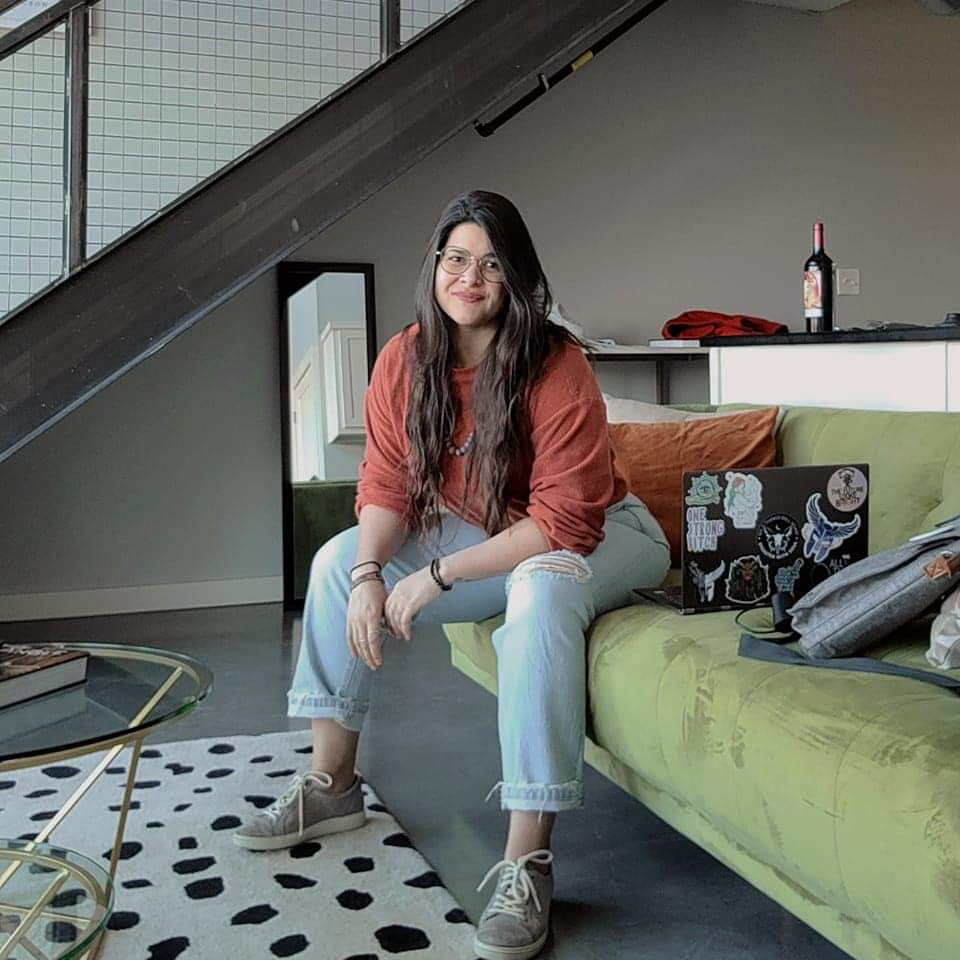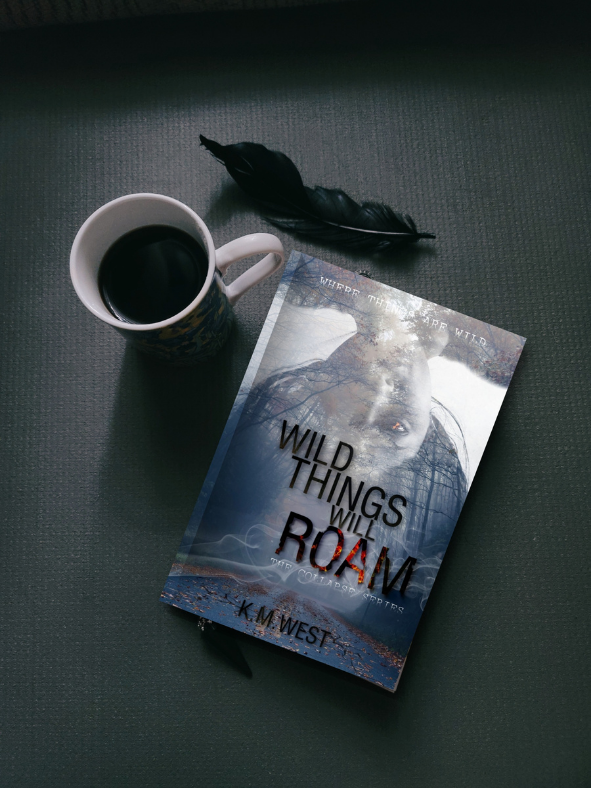There’s something a bit familiar in K.M. West’s novel, “Wild Things Will Roam,” the first installation of her series about two brothers who must save humanity in a post-war world.
Family ties, coping with loss and failed attempts to fulfill ancient prophecies are just a few challenges West’s characters face in “The Collapse” — an adult fiction series.
Published in 2020, “Wild Things Will Roam” is the middle of the series. West said she is seeking representation for the other two books in “The Collapse.” Her prequel, “Broken Things We Called Love,” is women’s fiction and magical realism. The sequel, tentatively titled “Run, You Hunted Things” is a horror dystopian fantasy.
“It is very visceral … at times very violent, but it is ultimately very helpful,” West explains.
The series backdrop? East Texas.
For West who grew up in Tyler and has aunts, uncles, cousins and all sets of grandparents scattered throughout the Tyler-Longview-Jacksonville trifecta, it is a natural setting.
“I grew up with Granny and riding four-wheelers with my cousins in the Longview pines,” West said. “I can’t separate myself from East Texas. It’s the foundation on which I was built.”
Although West currently resides in Oklahoma, as a writer, East Texas became a rich physical and ideological space for her characters. She said it was important to set “Wild Things Will Roam” – a post-apocalyptic story – in places that actually exist.

A sea of pines
West’s sequel — not yet released — takes place behind the Pine Curtain of East Texas.
The sea of pine trees West remembers through her childhood became a space in her novel to heighten characters’ emotions.
“Much like the ocean, the woods are a place that feels both welcoming and isolating. You’re reminded how small you are, and there’s a great unknown beyond — that double edged sword of excitement and anxiety,” West said.
Inspired by religion in East Texas
Also in the sequel, she imagines a Christian militant group called the Patriota. They form in the Bible Belt of the southern United States in the wake of bombings. West said growing up in the church in East Texas inspired the Patriota.
“There’s a lot of church references in (the novel). There’s an entire chapter called ‘Belief.’ And the interior of that church is modeled after the First Christian Church in Tyler. My mom is actually a Disciples of Christ minister,” she said.
West said people in the same faith tradition may hold multiple reasons for their religious devotion.
“…they are not a monolith,” she said, “… some [are] committed believers in Christ, some using their religion for political gain and others wielding their faith as a weapon to harm anyone who believes differently,” she explained.
West said she sees signs of change in the real world of 2022 since she conjured the Patriota years ago.
“When I started the series, they were more conjecture as to what I thought might happen, but the recent trends we’ve seen point to this being one of those ‘life imitates art’ moments,” she said.

Brothers at odds
Following an old tradition of oral and literary stories of brothers at odds, “Wild Things Will Roam” centers around two brothers, Lash and Ander Farrow.
West said the younger brother Ander is the recipient of an ancient prophecy. By contrast, the older brother, Lash, had to take the role of protector from a very young age.
Other characters feature prominently in “Wild Things Will Roam:” Liv and her adoptive father, Carian, who set out in search of a priestess; and “Creats,” creatures who wander the earth terrorizing humans.
West’s characters are tasked with navigating a post-war world and relationships once the imminent crisis abates.
“They have formed these relationships based on survival. And what happens when you reach that sticking point where you cannot move forward? How do you let people you love grow?” West asked.

Cultural disconnect
West, who is Filipina American, said she grew up feeling distant from her cultural identity – a feeling that ultimately became an important part of her series.
“What’s it like to be the same [as the mainstream culture], but not, and what does that look like?” she asked.
West said her uncle, country singer Neal McCoy, broaches this topic when he calls himself a “Texa-pino.”
“We’re ambiguously brown, what can I say?” West said.
A similar sense of ungrounded identity entered her series through characters who experience profound loss and uncertainty.
“Being a transient person is at the heart of all of my work. Here’s a story about liminal people who are between cultures; who are between an old world and a new world; who are straddling not only their cultures, but this lack of culture, because a lot of things have been lost,” West said.

Unfamiliar characters
West made the decision to use familiar genres like horror and fantasy but to construct characters who do not typically take center stage.
“I wanted to create something that was an empathy builder,” she said.
West said she hoped to let readers into the minds of unfamiliar characters, including the Romani-American Farrow brothers and Carian, who is Black.
West said books are an important way people build empathy, since visualizations from stories are stored in the brain similar to actual memories.
“You immerse yourself in someone else’s world, someone else’s perspective,” she said.
West said when books offend or create discomfort, they are helping people grow.
“Whenever you find a point of discomfort, that is where you need to lean in and do the work … it’s an opportunity for growth,” she said.
West noted the series, though fictive, contains elements helping readers cope with real life concerns.
“For the time that we are living in, it explores anxiety in a way that is cathartic for readers,” she said.

On being audacious
West said her creative work carries a torch farther to its destination.
“All you ever do is you see an idea through your lens and translate it through your voice. You’re not the finalized product. But if the message resonates with you, it resonates with you for a reason.
“And you have to be audacious. You have the obligation to share it so that it can get picked up in the next person.”
Love what you're seeing in our posts? Help power our local, nonprofit journalism platform — from in-depth reads, to freelance training, to COVID Stories videos, to intimate portraits of East Texans through storytelling.
Our readers have told us they want to better understand this place we all call home, from Tyler's north-south divide to our city's changing demographics. What systemic issues need attention? What are are greatest concerns and hopes? What matters most to Tylerites and East Texans?
Help us create more informed, more connected, more engaged Tyler. Help us continue providing no paywall, free access posts. Become a member today. Your $15/month contribution drives our work.







